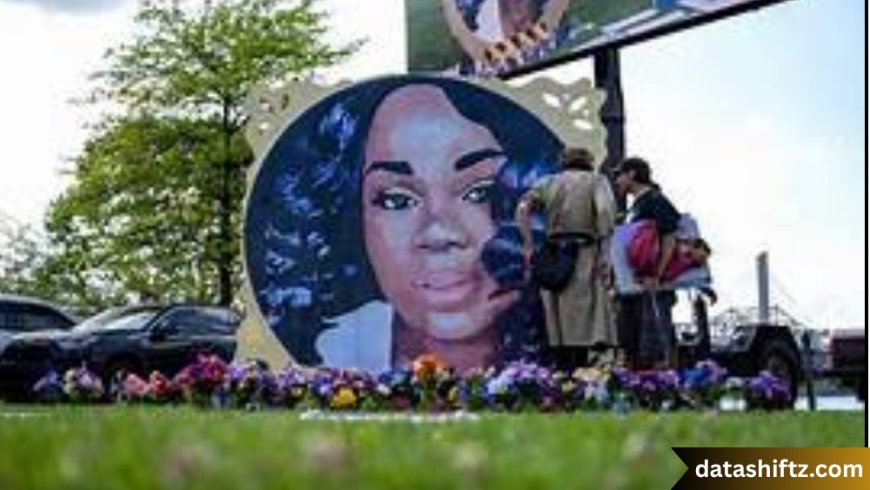Breonna Taylor: A Catalyst for Justice and Change in America

Introduction
The Life and Legacy of Breonna Taylor
Breonna Taylor’s name has become a symbol of justice denied and the urgent need for systemic reform in American policing and justice. A 26-year-old emergency medical technician (EMT) from Louisville, Kentucky, Breonna Taylor was shot and killed in her home by plainclothes police officers executing a “no-knock” warrant on March 13, 2020. Her death, which initially received little media attention, became a rallying cry during the global Black Lives Matter protests in the summer of 2020.
Breonna’s story is not just about one tragic night—it reflects a larger narrative of racial injustice, lack of police accountability, and the cry for meaningful reform. This article explores Breonna Taylor's life, the events that led to her death, the investigation and public response, and the sweeping changes her legacy has helped inspire.
Who Was Breonna Taylor?
Breonna Taylor was born on June 5, 1993. She was a beloved daughter, sister, and friend. She worked as an EMT at two hospitals in Louisville and was studying to become a nurse. Known for her compassion and commitment to helping others, she was, by all accounts, a young woman with a promising future.
Breonna had no criminal record and was not the subject of any police investigation. Her only connection to the case that brought officers to her door was a past relationship with a suspect in a drug case.
The Night of March 13, 2020
On the night of March 13, 2020, Louisville Metro Police Department (LMPD) officers executed a "no-knock" warrant at Breonna Taylor’s apartment. The warrant was connected to a drug investigation involving her ex-boyfriend, Jamarcus Glover, who did not live with her. According to her boyfriend Kenneth Walker, who was with her that night, the officers did not announce themselves before breaking down the door.
Walker, believing it was a home invasion, fired one shot, striking an officer in the leg. The officers responded with a barrage of gunfire—32 bullets were fired, six of which hit Breonna Taylor, killing her.
Key Details of the Breonna Taylor Incident
| Date | March 13, 2020 |
|---|---|
| Location | Louisville, Kentucky, USA |
| Victim | Breonna Taylor, 26 years old |
| Suspects | Plainclothes LMPD officers (Myles Cosgrove, Jonathan Mattingly, Brett Hankison) |
| Cause of Death | Gunshot wounds (six bullets) |
| Warrant Type | Initially a “no-knock” warrant |
The Aftermath and Lack of Immediate Accountability
In the immediate aftermath, little public attention was given to Breonna's death. The case did not generate national headlines until George Floyd's murder two months later. As protests erupted across the U.S., Breonna Taylor’s name became synonymous with racial injustice and police brutality.
Despite growing public outrage, none of the officers were immediately arrested or charged for Taylor’s death. Instead:
-
Kenneth Walker was arrested and charged with attempted murder of a police officer (the charges were later dropped).
-
The LMPD officers were reassigned, but not disciplined or terminated right away.
-
Public records requests were delayed, and the official incident report was largely blank, sparking further controversy.
Legal and Judicial Proceedings
The pursuit of justice for Breonna Taylor led to multiple investigations and legal actions, both state and federal. However, the outcomes have been divisive and controversial.
Key Legal Milestones in the Breonna Taylor Case
-
September 2020: Kentucky Attorney General Daniel Cameron presents the case to a grand jury.
-
Only Brett Hankison is indicted—not for Taylor’s death, but for “wanton endangerment” due to bullets fired into a neighboring apartment.
-
No officers are charged directly for Taylor's death.
-
2021-2022: The U.S. Department of Justice opens a federal investigation.
-
August 2022: Four officers, including Hankison, are federally charged for civil rights violations and obstruction.
Legal Outcomes for Involved Officers
| Officer | Initial State Charges | Federal Charges | Status |
|---|---|---|---|
| Brett Hankison | Wanton endangerment (acquitted) | Civil rights violations | Awaiting trial |
| Myles Cosgrove | None | No federal charges (as of 2023) | Fired from LMPD |
| Jonathan Mattingly | None | No federal charges | Retired from LMPD |
| Joshua Jaynes | None (but fired) | Federal charges for falsifying the affidavit | Awaiting trial |
Policy and Legislative Reforms Sparked by the Case
Breonna Taylor’s death galvanized a wave of legislative changes at local, state, and national levels. In Louisville, a law known as “Breonna’s Law” was passed unanimously by the city council in June 2020.
Major Reforms Inspired by Breonna Taylor's Case
-
Breonna’s Law (Louisville)
-
Bans no-knock warrants within the city
-
Requires body cameras to be turned on before and after searches
-
-
Statewide Ban (Kentucky)
-
Signed into law in April 2021; restricts but doesn’t entirely ban no-knock warrants
-
-
George Floyd Justice in Policing Act
-
A federal bill introduced in Congress that includes reforms in response to cases like Breonna Taylor’s
-
As of 2025, still awaiting full passage in the Senate
-
The Cultural and Social Impact of Breonna Taylor's Name
Breonna Taylor’s image became central to the Black Lives Matter movement. Artists painted murals, celebrities wore her name on red carpets, and protesters carried signs reading “Say Her Name,” emphasizing the erasure of Black women from national conversations on police violence.
Her name inspired global conversations about:
-
Police accountability
-
Racial injustice
-
Gendered violence
-
The intersection of race and healthcare (as she was a healthcare worker killed during a pandemic)
Criticism of Media Coverage and Legal Handling
Many activists and journalists criticized the initial media silence and government inaction in the wake of Taylor’s killing.
Common Critiques of the Case Handling
| Aspect | Criticism |
|---|---|
| Media | Slow national coverage compared to other high-profile cases |
| Grand Jury Process | Lack of transparency; jurors said charges for Taylor were never presented |
| Police Accountability | Delayed terminations and no initial arrests |
| Use of No-Knock Warrants | Seen as dangerous and racially biased |
Breonna Taylor’s Family and Their Continued Fight
Breonna’s family, particularly her mother Tamika Palmer, has become a powerful voice for police reform. In September 2020, the city of Louisville agreed to a $12 million settlement with the Taylor family and pledged to implement policy changes.
Actions Taken by Taylor's Family and Supporters
-
Filed civil lawsuit against LMPD
-
Demanded release of grand jury transcripts
-
Partnered with advocacy groups
-
Launched educational and justice-based initiatives
-
Continued calls for accountability and remembrance
Conclusion:
Breonna Taylor’s Enduring Legacy
Breonna Taylor’s death is not an isolated incident but part of a long and painful history of racial injustice in America. What makes her story uniquely powerful is how her name, once overlooked, has now been enshrined in murals, legislation, and the collective call for justice.
As of 2025, her case remains a benchmark in conversations about police reform, civil rights, and public accountability. Her legacy continues not just in courtrooms or on protest signs, but in the laws being written, the voices being raised, and the minds being changed.
Breonna Taylor’s life mattered—and through action, remembrance, and reform, her legacy will endure.





























